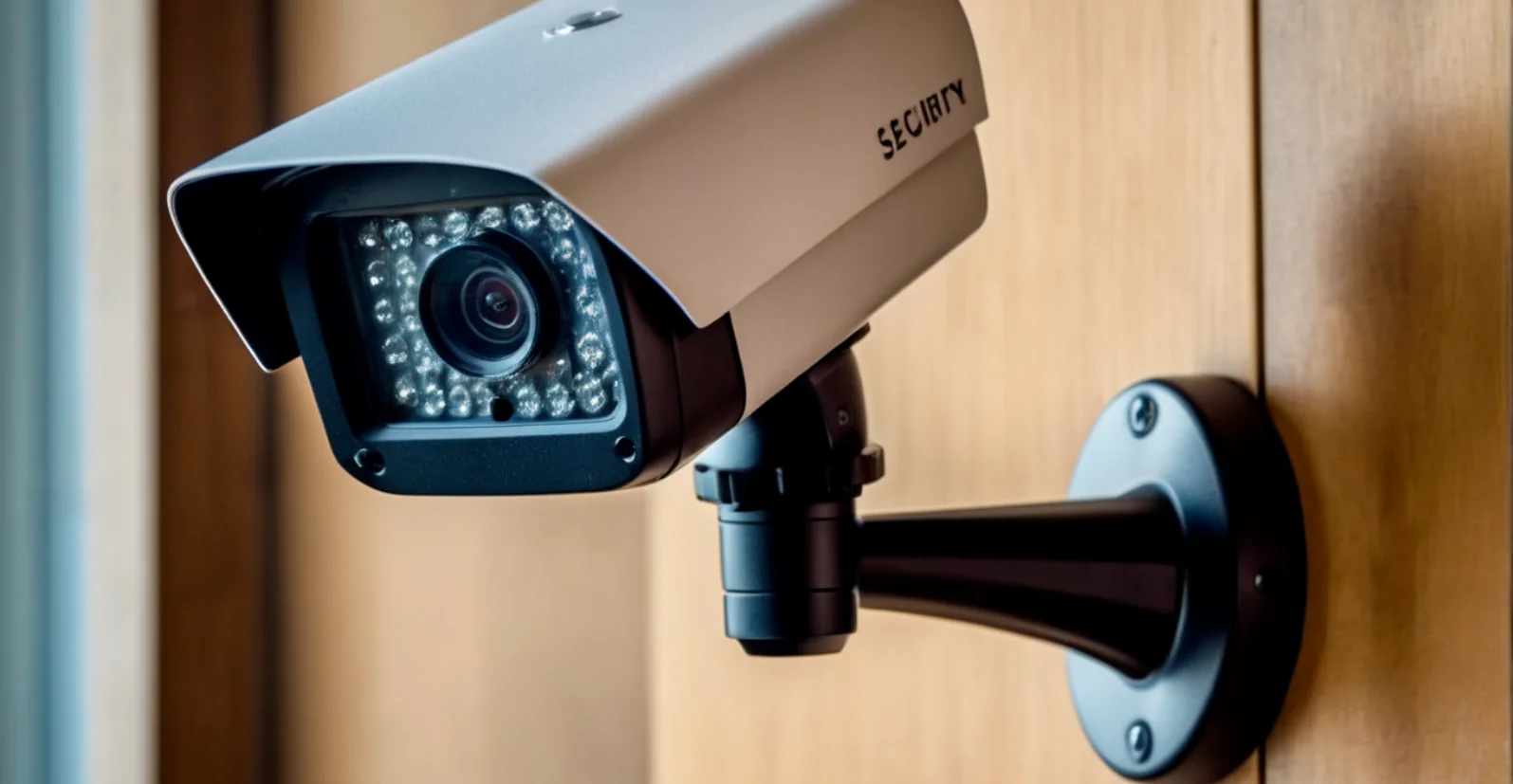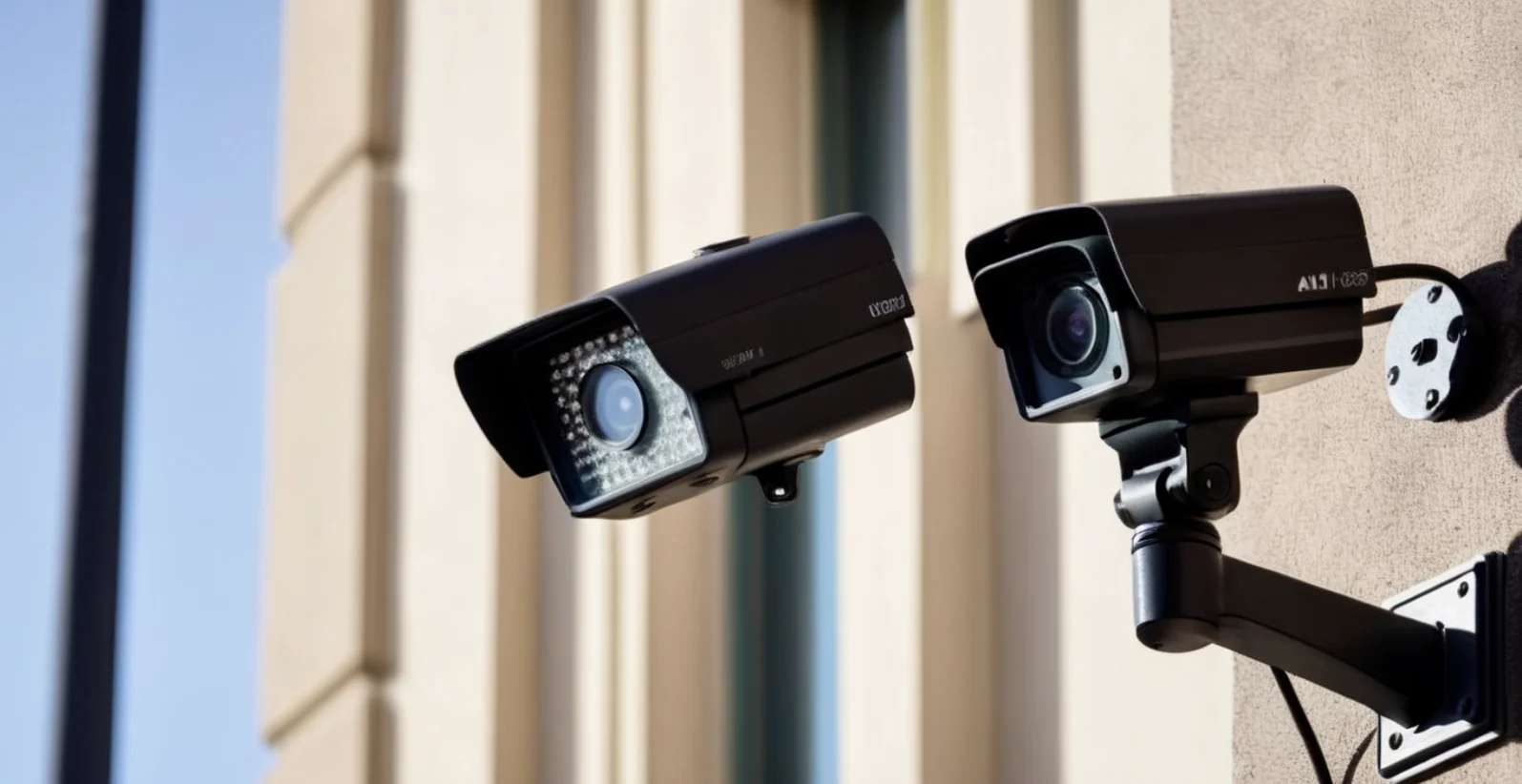Hotel security technology has advanced rapidly in recent years thanks to AI and machine learning. What was once only affordable to the wealthy has now become a necessity for most homeowners.
A major part of this shift has been the proliferation of smart home devices and internet-connected security cameras. Of all the smart gadgets on the market, few have integrated AI as quickly as the hotel security camera.
Early security cameras were limited by wired power, local storage, and cumbersome footage review. Now, wireless capabilities and cloud storage have made security cameras portable, flexible, and easy to control remotely via smartphone. Many models utilize computer vision and deep learning to automatically detect people, vehicles, and pets while filtering out false alerts from swaying branches or weather events.
 AI and machine learning allow home security cameras to become increasingly intelligent. Companies like Amazon and Google and startups like Deep Sentinel are incorporating sophisticated algorithms into their products to create smarter monitoring systems. Beyond recognizing faces, these home AI systems can identify objects, read license plates, detect glass breaking, filter event alerts, and learn patterns of normal household activity to flag suspicious behavior.
AI and machine learning allow home security cameras to become increasingly intelligent. Companies like Amazon and Google and startups like Deep Sentinel are incorporating sophisticated algorithms into their products to create smarter monitoring systems. Beyond recognizing faces, these home AI systems can identify objects, read license plates, detect glass breaking, filter event alerts, and learn patterns of normal household activity to flag suspicious behavior.
Computer vision techniques like convolutional neural networks enable cameras to be highly discerning. Instead of just comparing pixel changes frame-to-frame, they can classify human forms, vehicles, animals and other objects. This contextual information helps the camera determine real threats versus mundane activity. AI cameras also continuously improve their accuracy over time by learning from real world data during regular use. Companies like Deep Sentinel even upload video clips to the cloud to further train their algorithms.
While AI is advanced, human oversight remains critical for home security cameras using AI. Humans provide an extra layer of insight to aid the AI learning process when deciphering complex threats. Human emergency verification also complements AI alert systems to confirm actual dangers. This hybrid AI and human monitoring approach delivers intelligent monitoring with faster emergency response.
Facial recognition is a controversial yet powerful AI capability for home security cameras. While privacy concerns exist, facial recognition offers obvious security benefits for homeowners wanting to monitor family and property. Cameras can recognize familiar faces while alerting users to unknown visitors. Over time, recognition improves as more images are logged under different lighting and expressions. AI facial recognition removes the need for manually tagging people.
 Beyond real-time monitoring, AI enables security cameras to double as an evidence archive and investigation system. Users can quickly surface specific events, people and objects by searching footage using keywords, filters and other parameters. AI-generated activity timelines based on advanced scene analysis accelerate forensic review instead of skimming through hours of video. Those investigating crimes and accidents can use automated smart camera logs to aid police reports and insurance claims.
Beyond real-time monitoring, AI enables security cameras to double as an evidence archive and investigation system. Users can quickly surface specific events, people and objects by searching footage using keywords, filters and other parameters. AI-generated activity timelines based on advanced scene analysis accelerate forensic review instead of skimming through hours of video. Those investigating crimes and accidents can use automated smart camera logs to aid police reports and insurance claims.
AI home security cameras certainly have downsides. Privacy and civil liberty concerns exist regarding the sheer volume of data being collected. Laws and regulations lag behind the rapidly evolving technology. Ethical questions arise if cameras are used to track people without consent. The risk of hacking and data abuse is also heightened with AI systems. Some companies try to mitigate privacy risks by processing data locally and limiting cloud uploads. Overall, consumers must weigh the benefits and risks before deploying AI monitoring.
Despite concerns, our appetite for convenience and household security continues to drive AI adoption. Prices have fallen as media coverage hypes porch pirates and home invasions. AI capabilities like activity zones, object tracking and color night vision improve monitoring and deterrence. Cloud storage ensures footage integrity while facilitating police collaboration. Remote access provides peace of mind while away. AI-filtered event alerts save users from skimming through hours of mundane footage.
Looking ahead, embedded AI will likely expand capabilities even further. AI audio parsing to detect aggression or calls for help is on the horizon. Autonomous drone systems could survey properties from above. Sharper video analytics will better differentiate people from animals. Integration with smart locks, alarms and other home automation tech will continue.
Still, traditional security cameras with good wireless connectivity, motion detection and real-time phone alerts already cover most basic home security needs. While AI has limitations, selective use of certain AI capabilities could be beneficial for some homeowners. When implemented appropriately, AI security cameras can watch over homes with algorithmic vigilance.
